The Constitution Change Conundrum: Navigating the Shifting Sands of Philippine Constitutional Reform
Associated Articles: The Constitution Change Conundrum: Navigating the Shifting Sands of Philippine Constitutional Reform
Introduction
With enthusiasm, let’s navigate via the intriguing matter associated to The Constitution Change Conundrum: Navigating the Shifting Sands of Philippine Constitutional Reform. Let’s weave fascinating data and supply recent views to the readers.
Desk of Content material
The Constitution Change Conundrum: Navigating the Shifting Sands of Philippine Constitutional Reform
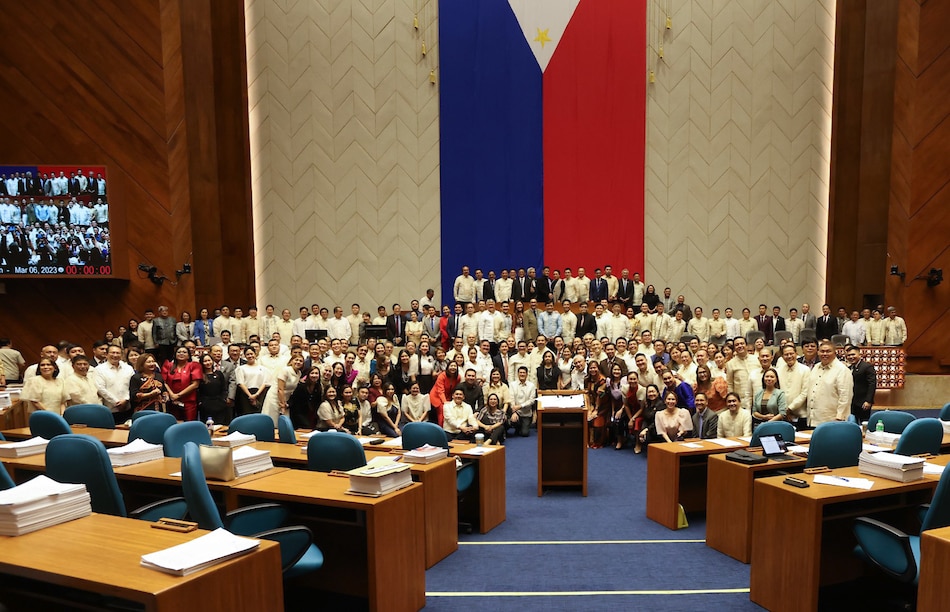
The Philippines, a vibrant democracy grappling with persistent socio-economic challenges, periodically finds itself embroiled in debates surrounding Constitution Change (Cha-cha), the method of amending or revising its 1987 Structure. This seemingly technical subject resonates deeply with the Filipino psyche, stirring passionate arguments that usually transcend partisan politics and contact upon basic questions of nationwide id, governance, and financial improvement. Understanding the complexities of Cha-cha requires inspecting its historic context, the proposed adjustments, the political dynamics concerned, and the potential penalties for the nation.
The 1987 Structure, crafted within the aftermath of the Marcos dictatorship, aimed to determine a steady and democratic authorities. It enshrined basic rights, established a system of checks and balances, and sought to forestall the recurrence of authoritarian rule. Nonetheless, over the a long time, varied sectors have argued that sure provisions have develop into outdated or hinder the nation’s progress. These arguments kind the core of the recurring Cha-cha debates.
The Arguments for Constitution Change:
Proponents of Cha-cha sometimes advance a number of key arguments. A central theme revolves round financial improvement. They contend that sure constitutional restrictions, notably these associated to international possession and funding, restrict the Philippines’ competitiveness within the world market. The 60-40 international possession restriction in a number of sectors, as an illustration, is seen as a major deterrent to attracting much-needed international direct funding (FDI). Advocates consider that stress-free these restrictions would stimulate financial progress, create jobs, and enhance the general way of life. They level to the success of different nations which have liberalized their economies via constitutional reforms as proof of the potential advantages.
One other steadily cited argument focuses on political reforms. Some consider that the present presidential system is inefficient and susceptible to corruption. They suggest shifting to a parliamentary system, arguing that it could foster larger collaboration between the chief and legislative branches, resulting in more practical governance. This argument usually highlights the perceived gridlock and political infighting that steadily characterize the Philippine political panorama. Moreover, some proponents advocate for adjustments to the electoral system, suggesting reforms to handle points equivalent to political dynasties and vote-buying.
Moreover, the difficulty of federalism is commonly intertwined with Cha-cha discussions. Advocates for federalism argue that it could decentralize energy, permitting native governments to higher tackle the precise wants of their areas. This, they declare, would result in extra equitable distribution of sources and alternatives, decreasing regional disparities and selling larger nationwide unity. Nonetheless, critics increase considerations in regards to the potential for elevated regional fragmentation and the weakening of nationwide cohesion.
The Arguments In opposition to Constitution Change:
Opponents of Cha-cha increase a number of counterarguments. Many categorical considerations that amending the Structure, notably via a course of that lacks enough public session, might result in the erosion of democratic establishments and the focus of energy within the palms of some. They argue that the present system, whereas imperfect, gives satisfactory safeguards in opposition to authoritarianism and ensures the safety of basic rights. They warn that swiftly undertaken reforms might have unintended and destructive penalties.
Financial arguments in opposition to Cha-cha usually middle on the potential dangers of international domination. Critics argue that stress-free international possession restrictions might result in the exploitation of Philippine sources and labor, undermining nationwide pursuits. They emphasize the necessity for rigorously calibrated insurance policies that promote financial progress whereas defending the nation’s sovereignty. Additionally they spotlight the significance of strengthening home industries earlier than totally opening up the financial system to international competitors.
Issues concerning political instability additionally characteristic prominently within the opposition’s arguments. Critics argue that amending the Structure, particularly within the midst of political turmoil, might additional destabilize the nation. They categorical anxieties that adjustments to the political system might be exploited by these in search of to consolidate energy or undermine democratic processes. The potential for unexpected penalties and the shortage of a transparent consensus on the specified adjustments contribute to this apprehension.
The Political Dynamics of Cha-cha:
The political panorama surrounding Cha-cha is commonly extremely charged and complicated. Totally different political factions have various pursuits and agendas, resulting in shifting alliances and strategic maneuvering. The timing of Cha-cha initiatives usually coincides with political cycles, with proponents making an attempt to capitalize on favorable political climates to push their agendas. This has led to accusations of self-serving motives and a scarcity of real dedication to real reform.
The involvement of highly effective political households and vested pursuits additional complicates the difficulty. Many proponents of Cha-cha are themselves members of influential political clans, elevating considerations about potential conflicts of curiosity and the prioritization of non-public beneficial properties over nationwide pursuits. This notion of self-interest considerably undermines public belief and fuels opposition to constitutional reforms.
The Path to Constitution Change:
The Philippine Structure outlines two main strategies for amending the Structure: via a constituent meeting (Con-Ass) or via a constitutional conference (Con-Con). A Con-Ass includes Congress sitting as a constituent meeting, whereas a Con-Con requires the election of delegates to a separate physique tasked with drafting the amendments. Each strategies require a supermajority vote in Congress, highlighting the numerous political hurdles concerned.
The selection between a Con-Ass and a Con-Con has been a topic of intense debate. A Con-Ass is seen as a faster and doubtlessly cheaper choice, nevertheless it additionally raises considerations in regards to the dominance of the legislative department. A Con-Con, whereas doubtlessly extra consultant and deliberative, is a extra prolonged and dear course of. The choice on which technique to undertake usually turns into a major level of rivalry within the political area.
Conclusion:
The difficulty of Constitution Change within the Philippines is much from a easy matter of technical authorized changes. It’s a deeply political subject that displays the nation’s ongoing wrestle to steadiness financial improvement with democratic stability. The arguments for and in opposition to Cha-cha are compelling, and every carries vital weight. The trail ahead requires cautious consideration of the potential advantages and dangers, a broad-based nationwide dialogue that transcends partisan traces, and a dedication to transparency and accountability. Finally, the success of any Cha-cha initiative hinges on the flexibility of all stakeholders to prioritize the long-term pursuits of the nation over short-term political beneficial properties. The way forward for the Philippine Structure, and by extension, the way forward for the Philippines itself, will depend on navigating this complicated and infrequently contentious debate with knowledge and foresight. A real and inclusive course of that prioritizes the wants and aspirations of the Filipino individuals is essential to making sure that any constitutional reforms serve one of the best pursuits of the nation.
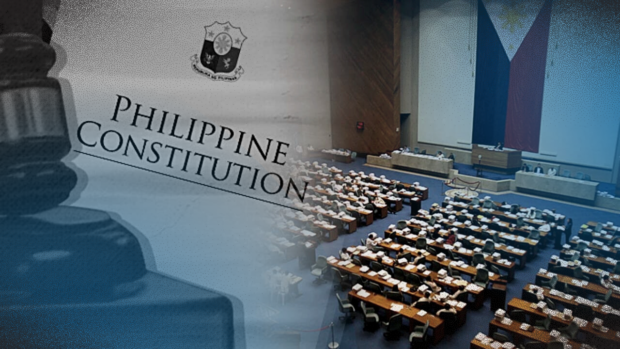
![[OPINION] Here we go again with charter change](https://www.rappler.com/tachyon/2023/03/TL-chacha.jpg)
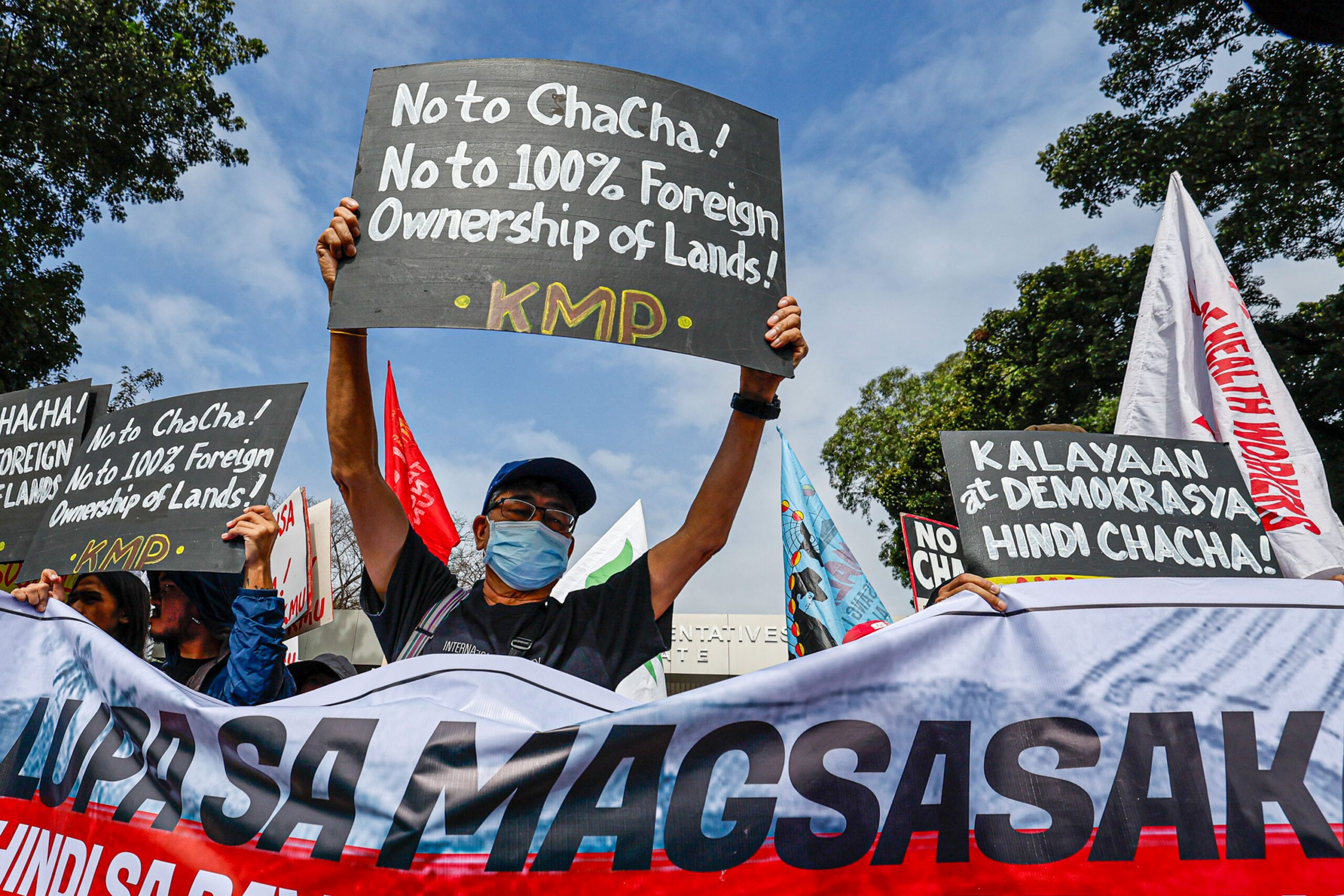

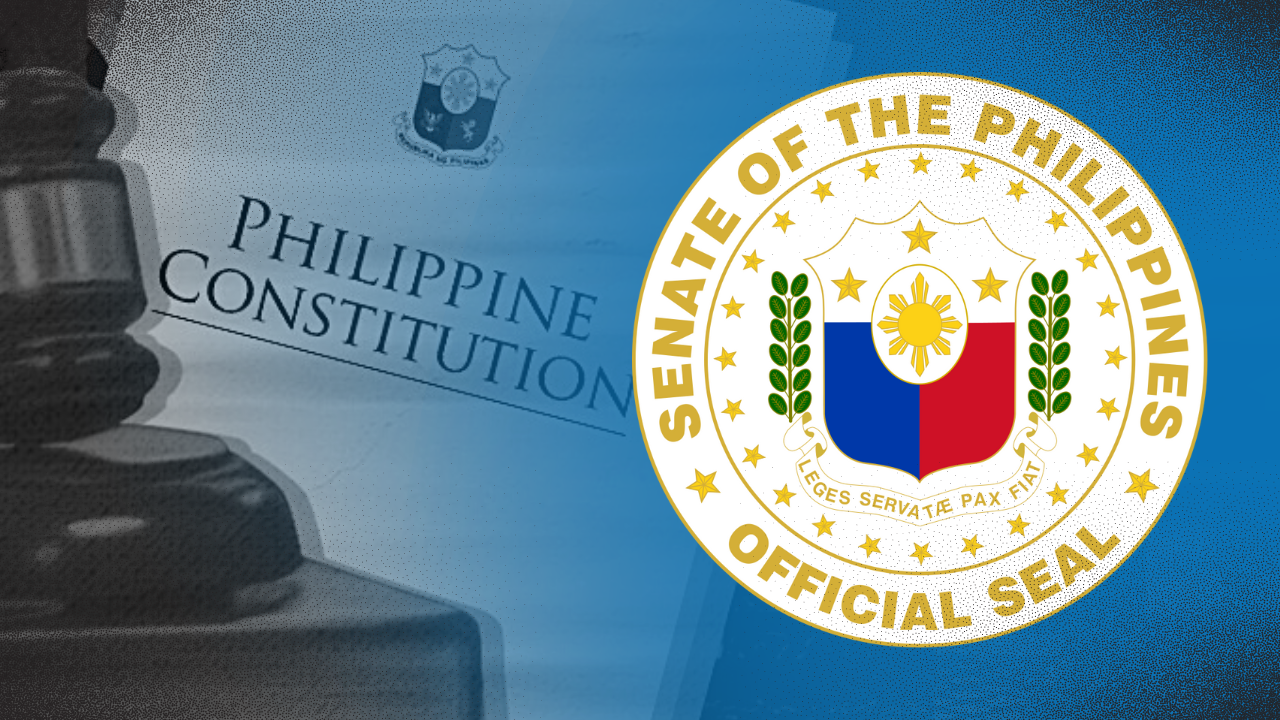
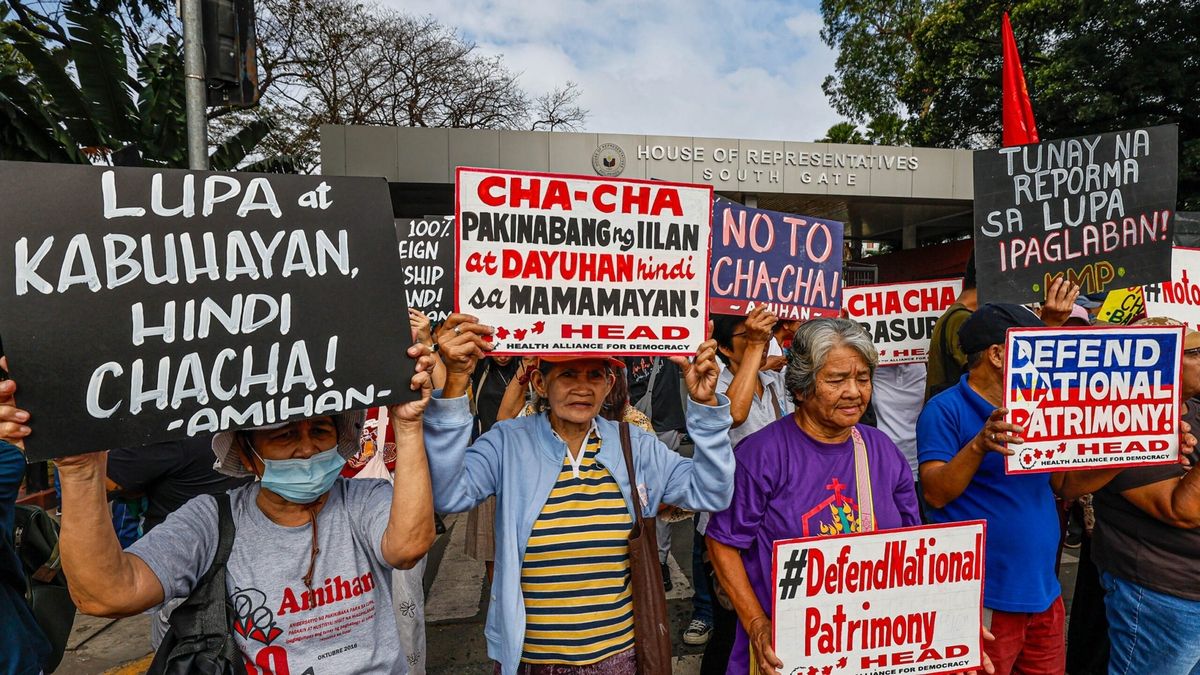
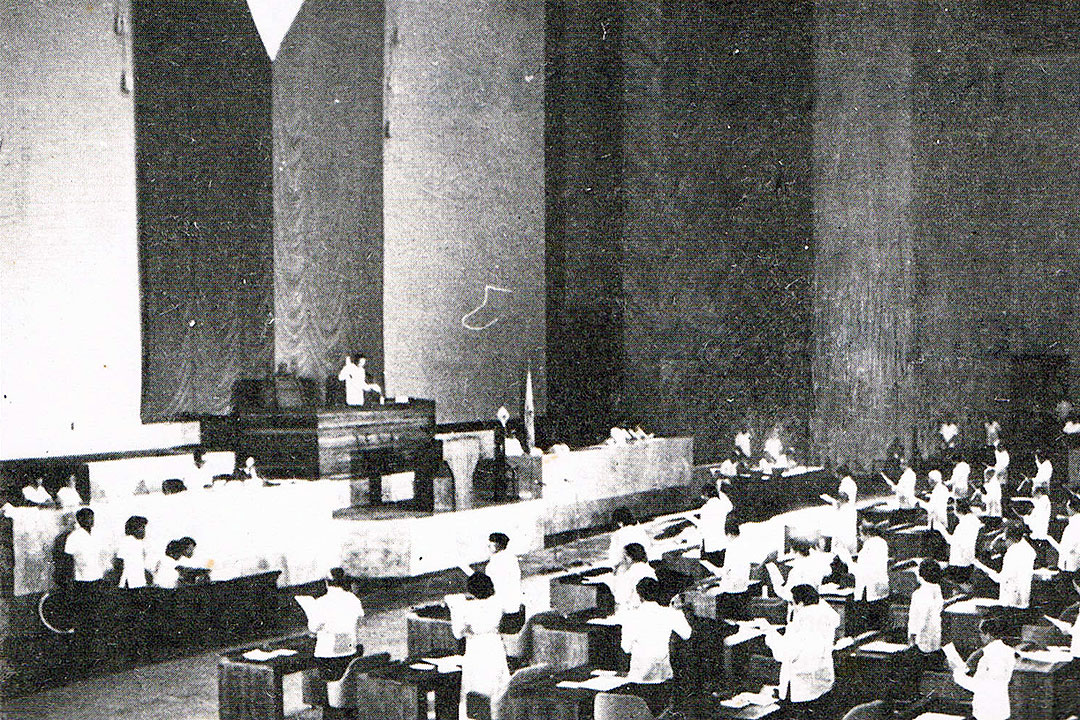
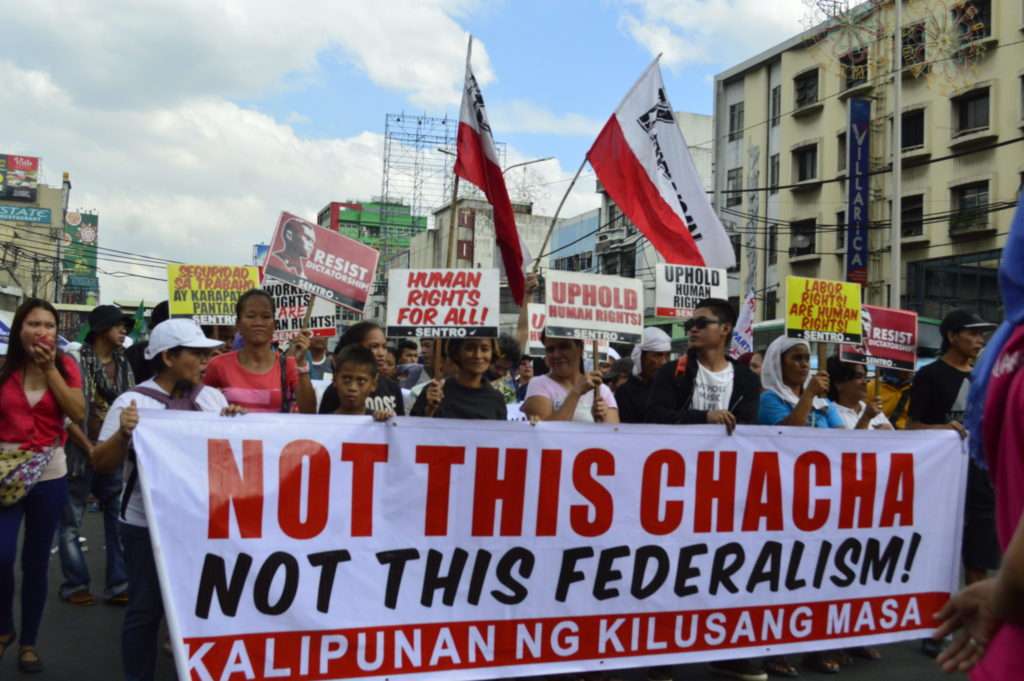
Closure
Thus, we hope this text has supplied invaluable insights into The Constitution Change Conundrum: Navigating the Shifting Sands of Philippine Constitutional Reform. We hope you discover this text informative and useful. See you in our subsequent article!